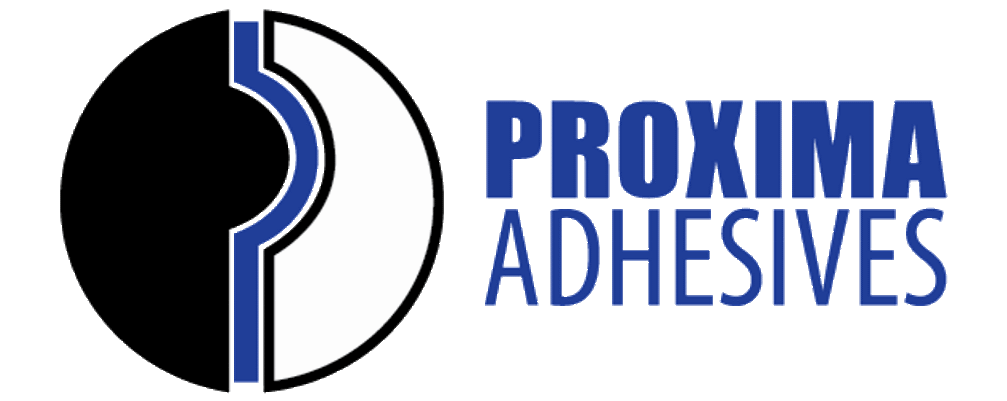Industrial adhesives
Articles
Newsletters
Articles
On this page you will find articles about structural adhesives, solvent adhesives and resins. Health and safety in bonding. A short course in adhesive technology.
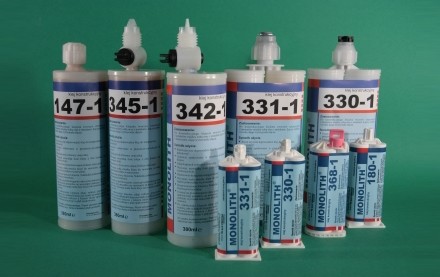
MONOLITH - Leader in Structural Adhesives
MONOLITH structural adhesives are characterised by their high bond strength and hardness. They replace traditional material bonding or alternative other bonding methods. By definition, a structural adhesive is an adhesive that forms a bond stronger than the materials it is used to join. MONOLITH adhesives can be used to join similar or dissimilar materials by contributing to the final structural whole and its strength.
Written by: Aleksandra Lewandowska, Sławomir Chorek
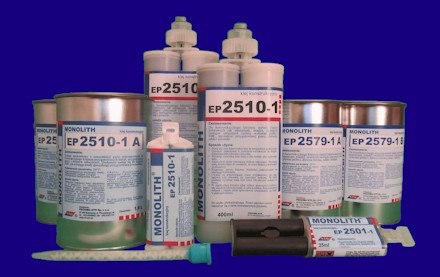
Metal bonding in the industrial sector
Bonding is not a fundamental method of joining metals. It is still a developing field. There are more popular methods using traditional mechanical techniques. However, brare times when it is worthwhile or there is no other choice, and this is the method chosen to join plastics using a bond created by chemical means. So when is it worth using this method?
Written by: Aleksandra Lewandowska, Sławomir Chorek

Health and safety in the bonding process
Health and safety at work... For the 'ordinary' employee, it is usually associated with boring training courses. We want to change that! The purpose of this article is to make you aware of the importance of complying with and enforcing health and safety standards and rules for your employees, with particular emphasis on those relating to the bonding process.
Written by: Katarzyna Gajda

Design and construction of composite bonding
Although there are many guides to bonding composites on the internet, it is worth taking a moment to read the advice on bonding these materials.
Written by: Katarzyna Gajda, Sławomir Chorek
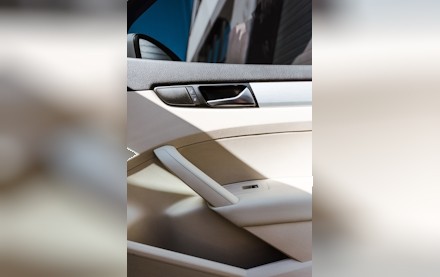
Structural bonding of thermoplastics
The structural bonding of components during assembly using adhesives is a rapidly developing technology in industry. This article gives examples of the use of adhesives in the automotive and shipbuilding industries, where it has been adopted by leading global manufacturers. Critical design and assembly process control criteria to ensure technical success are identified. The results of current adhesive applications are also discussed.
Written by: Marek Bernaciak
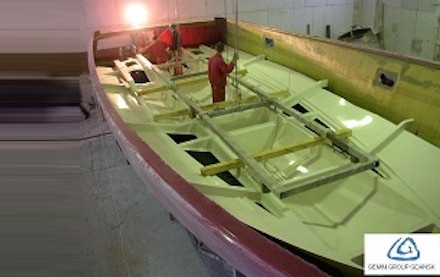
Hull bonding of laminate yachts
With more and more sailing enthusiasts owning motor or sailing yachts, some even building their own yacht 'from scratch', we would like to introduce you to the use of PLEXUS adhesives in boatyards.
Written by: Zygmunt Tyska
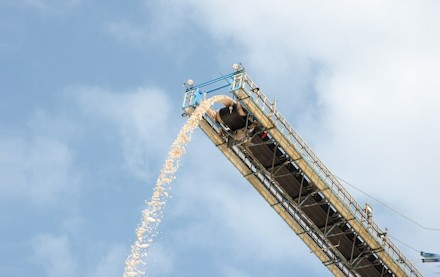
Bonding of conveyor belts and rubber linings
This study is intended as a guide for those who wish to carry out cold bonding of industrial rubber conveyor belts and rubber to metal bonding, for example in the manufacture of bumpers or rubber linings. Proxima Adhesives offers a special high-strength adhesive, MONOLITH PKT, which enables flexible and durable joints to be made.
Written by: Marek Bernaciak

Adhesives simplify composite construction
The use of structural adhesives has increased significantly over the last few decades. These adhesives have been used, for example, to bond the thermal shield plates of the Shuttle and have replaced mechanical fasteners in well-known bombers and stealth fighters. But what are structural adhesives? How do they simplify the construction of plastic composites?
Written by: Marek Bernaciak
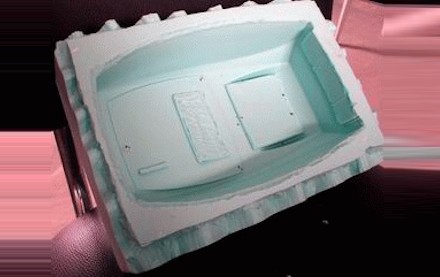
Rapid prototyping
Anyone involved in the injection moulding of plastic parts knows that in order to make the first injection mould, you need a mould. Such a mould is usually made of metal and its main characteristic is its very high price.
Written by: Aleksander Łychin
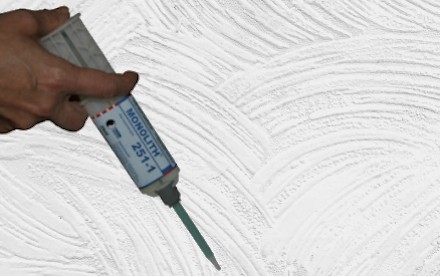
Bonding technique. A short course.
Bonding is the process of joining two or more surfaces by means of an adhesive or adhesion. There are many types of adhesives, applications and bonding techniques used in a wide range of industrial and domestic applications. Here is some information on the subject.
Written by: Sławomir Chorek

Flexible structural bonding
Flexible structural adhesives are special types of adhesives used in construction and industry to join different materials. They are designed to exhibit flexibility after curing to compensate for any movement or vibration of the materials.
Written by: Sławomir Chorek, Marek Bernaciak

What is rapid prototyping?
Rapid prototyping is a group of techniques used to rapidly create physical models of full-scale parts or assemblies using 3D computer-aided design data. This process enables the rapid and efficient creation of prototypes for testing, analysis and evaluation prior to mass production.
Written by: Sławomir Chorek
Newsletter (in Polish)
2023
-
Grudzień 2023Najlepsze kleje do gumy – Część II
-
Październik 2023Najlepszy klej do gumy – Część I
-
Sierpień 2023Najpopularniejsze żywice epoksydowe
-
Czerwiec 2023Klej epoksydowy – w przemyśle używany najczęściej
-
Kwiecień 2023Najczęstsze przyczyny problemów z klejeniem
-
Luty 2023Klejenie materiałów o różnych współczynnikach rozszerzalności cieplnej
2021
-
Grudzień 2021Jak wybrać odpowiedni klej konstrukcyjny.
-
Październik 2021Niepewność prognozy wytrzymałości klejonych połączeń metali.
-
Sierpień 2021Wpływ obróbki mechanicznej na wytrzymałość.
-
Czerwiec 2021Technologia klejenia w produkcji autobusów.
-
Kwiecień 2021Rozwój klejenia.na przestrzeni wieków. Część III.
-
Luty 2021Trwałość zmęczeniowa połączeń klejowych.
2020
-
Grudzień 2020Rozwój klejenia.na przestrzeni wieków. Część II.
-
Październik 2020Jak zwiększyć wytrzymałość połączeń klejowych.
-
Sierpień 2020Rozwój klejenia.na przestrzeni wieków. Część I.
-
Czerwiec 2020Przygotowanie powierzchni aluminium do klejenia.
-
Kwiecień 2020Statyczna trwałość czasowa połączeń klejowych.
-
Luty 2020Monolith – zaprojektowane kleje konstrukcyjne.
2018
2016
-
Grudzień 2016BHP w procesie klejenia.
-
Wrzesień 2016Poradnik: Czym kleić kompozyty?
-
Maj 2016Poradnik: Co należy zrobić z klejem wypływającym ze spoiny. Kwiecień 2016.
-
Kwiecień 2016Poradnik: Klejenie materiałów o różnych współczynnikach rozszerzalności cieplnej.
-
Marzec 2016Kiedy wilgoć i woda są pożądanie w procesie klejenia, a kiedy utrudniają ten proces?
-
Luty 2016Poradnik: Wpływ temperatury na proces klejenia i wytrzymałość połączenia.
-
Styczeń 2016Klejenie kadłuba jachtów laminatowych.
2016
-
Grudzień 2016BHP w procesie klejenia.
-
Wrzesień 2016Poradnik: Czym kleić kompozyty?
-
Maj 2016Poradnik: Co należy zrobić z klejem wypływającym ze spoiny. Kwiecień 2016.
-
Kwiecień 2016Poradnik: Klejenie materiałów o różnych współczynnikach rozszerzalności cieplnej.
-
Marzec 2016Kiedy wilgoć i woda są pożądanie w procesie klejenia, a kiedy utrudniają ten proces?
-
Luty 2016Poradnik: Wpływ temperatury na proces klejenia i wytrzymałość połączenia.
-
Styczeń 2016Klejenie kadłuba jachtów laminatowych.
